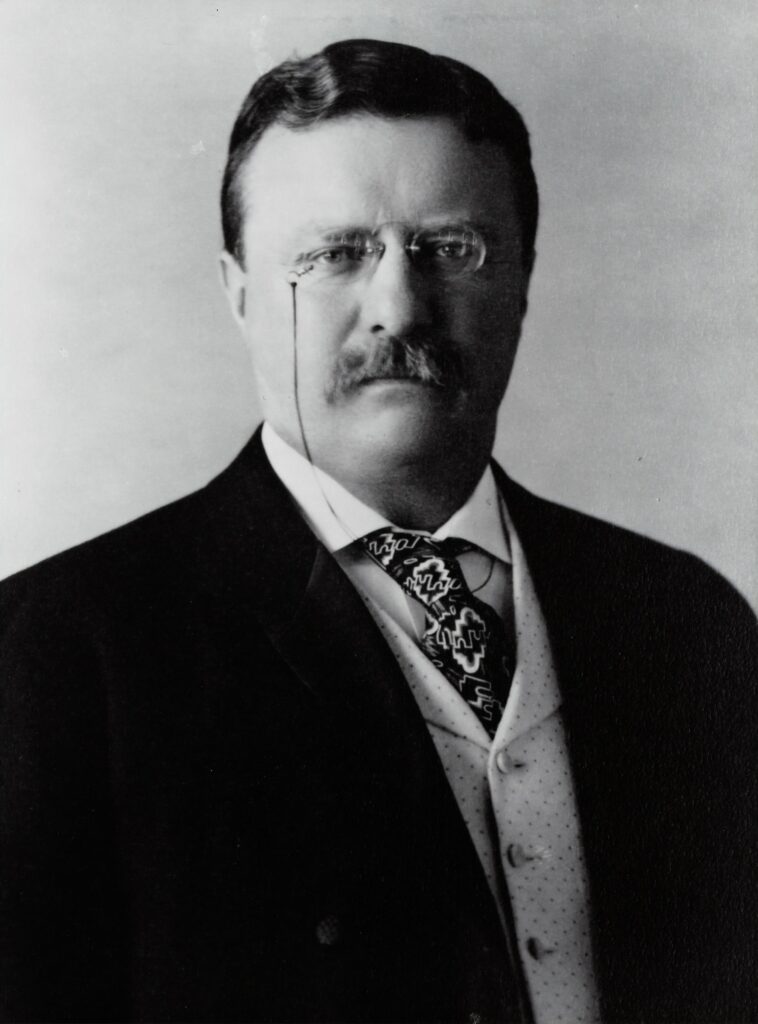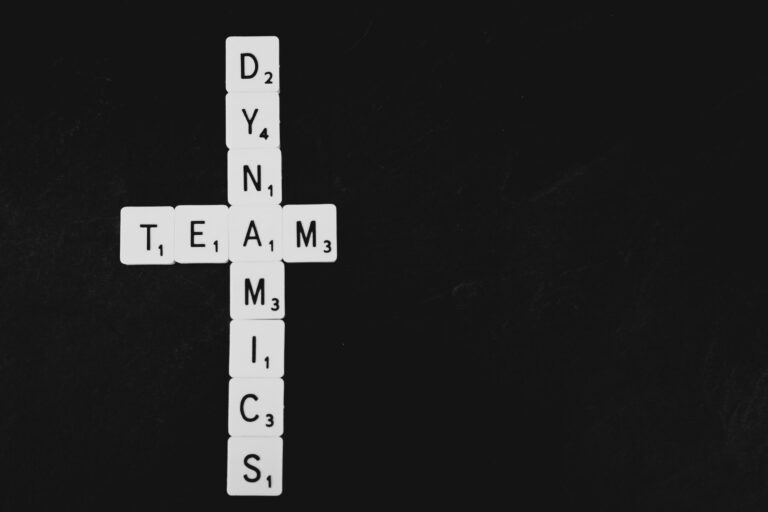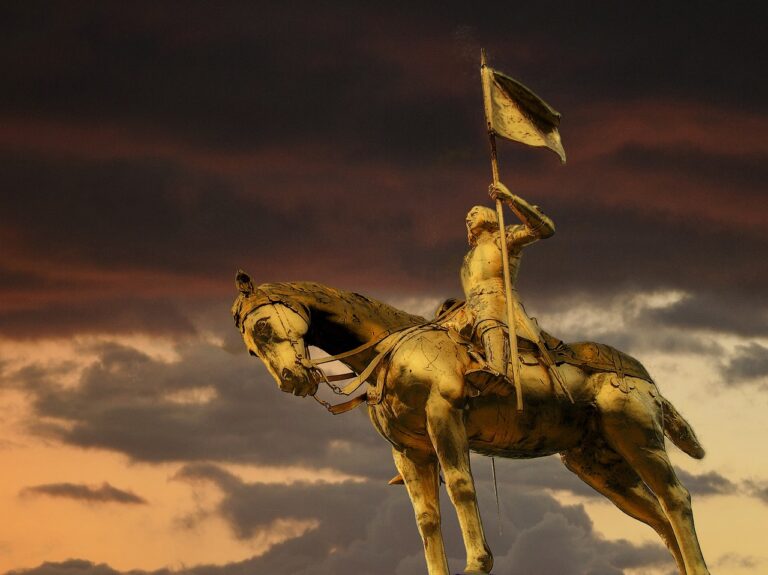Theodore Roosevelt: Lessons in Leadership
Discover the Leadership Legacy of Theodore Roosevelt
Leadership is a crucial aspect of any organization or community. It requires individuals who possess the necessary skills, knowledge, and character to inspire and guide others towards a common goal. In the field of leadership development, there are countless examples of influential leaders who have left an indelible mark on history. Theodore Roosevelt is one such leader whose legacy still resonates today.
Theodore Roosevelt was the 26th President of the United States, serving from 1901 to 1909. He is widely recognized for his dynamic leadership style and numerous accomplishments, which range from the conservation of natural resources to his efforts in foreign affairs. However, Roosevelt’s leadership journey did not begin when he took office as President. It started long before that, in his early life and military career, and continued through his time as a public official and beyond.
Learning from historical leaders like Theodore Roosevelt is critical for anyone seeking to develop their leadership skills. By examining the successes, failures, and lessons learned from influential leaders of the past, we can gain insights into what makes effective leadership and how we can apply these insights in our own lives.
Therefore, the purpose of this article is to explore the leadership lessons and stories of Theodore Roosevelt, from his early life to his legacy today. By doing so, we hope to inspire and educate current and future leaders, helping them to become the best version of themselves and to positively impact the world around them.
Roosevelt’s Early Life and Leadership Development
Theodore Roosevelt was born in New York City in 1858, into a wealthy and prominent family. He was a sickly child, suffering from asthma and other health issues that left him frail and weak. However, his father, Theodore Roosevelt Sr., encouraged him to engage in physical activities to improve his health and build his character.
Roosevelt’s childhood experiences and influences played a significant role in his leadership development. His father instilled in him a strong work ethic and a sense of duty to his community. Additionally, his love of nature and the outdoors, which he developed through regular camping trips and excursions, would later shape his conservation efforts as a public official.
Roosevelt’s education and early career also contributed to his leadership development. He graduated from Harvard University in 1880, where he was known for his academic prowess and his participation in various extracurricular activities. After college, he entered politics, becoming a member of the New York State Assembly at the age of 23.
However, it was Roosevelt’s military service that would provide him with some of the most valuable leadership lessons of his life. In 1898, he resigned from his position as Assistant Secretary of the Navy to join the Rough Riders, a volunteer cavalry regiment, in the Spanish-American War. As a leader of this unit, he learned the importance of leading by example, maintaining morale, and making tough decisions under pressure.
Roosevelt’s military service also taught him the value of courage, perseverance, and resilience. He was wounded in battle, but refused to leave the front lines, earning him the nickname “The Hero of San Juan Hill.” This experience would shape his later leadership as President, where he demonstrated a willingness to take bold action and face challenges head-on.
Theodore Roosevelt’s early life and leadership development played a crucial role in shaping the leader he would become. His upbringing, education, and military service instilled in him the values and skills necessary to lead effectively and make a positive impact on the world.
Roosevelt’s Leadership as a Public Official
Theodore Roosevelt’s leadership abilities were further honed during his time as a public official. He served in various elected offices, including as Governor of New York and Vice President of the United States, before assuming the Presidency in 1901 following the assassination of William McKinley.
During his tenure as President, Roosevelt pursued a progressive agenda that included a wide range of policies and initiatives. He took on powerful corporations and trusts, championed workers’ rights, and expanded the role of the federal government in promoting the common good. Some of his most significant accomplishments include:
-
Trust-Busting: Roosevelt was a fierce opponent of monopolies and trusts, which he believed posed a threat to competition and free enterprise. He used the Sherman Antitrust Act to break up several large corporations, including Standard Oil and the Northern Securities Company.
-
Conservation: Roosevelt was a passionate advocate for the preservation of natural resources and the creation of national parks and forests. He established the U.S. Forest Service and signed legislation that protected over 230 million acres of land.
-
Consumer Protection: Roosevelt believed that businesses had a responsibility to protect the interests of consumers. He signed the Pure Food and Drug Act, which required accurate labeling and established the FDA to regulate the safety of food and medicine.
-
Foreign Policy: Roosevelt’s “Big Stick” diplomacy was characterized by his willingness to use military force to protect U.S. interests abroad. He played a key role in the construction of the Panama Canal, and negotiated peace between Russia and Japan, earning him the Nobel Peace Prize in 1906.
Roosevelt’s leadership style was characterized by his energy, charisma, and sense of purpose. He was a hands-on leader who was not afraid to get his hands dirty or to take risks. He believed in the power of government to effect positive change, and he worked tirelessly to make that belief a reality.
Lessons learned from Roosevelt’s leadership as a public official include the importance of standing up for what is right, even in the face of powerful opposition; the value of taking bold action to achieve meaningful goals; and the need to prioritize the common good over the interests of the wealthy and powerful.
Roosevelt’s Leadership in Conservation
One of Theodore Roosevelt’s most significant contributions as a leader was in the realm of conservation. Throughout his life, he was a passionate advocate for preserving the natural world and promoting sustainable practices. As President, he made conservation a top priority, establishing policies and initiatives that continue to shape environmental policy to this day.
Roosevelt’s conservation legacy is perhaps best exemplified by his creation of the U.S. Forest Service in 1905. This agency was established to oversee the management of public lands and natural resources, and it has played a crucial role in protecting forests, wildlife, and water resources across the country. Roosevelt also signed the Antiquities Act, which enabled him to designate over 18 national monuments, including the Grand Canyon and Devils Tower.
In addition to his policy initiatives, Roosevelt was also known for his love of the outdoors and his personal commitment to conservation. He was an avid hunter and fisherman, but he believed in the importance of responsible hunting and fishing practices. He once famously said, “In a civilized and cultivated country, wild animals only continue to exist at all when preserved by sportsmen.”
Lessons learned from Roosevelt’s leadership in conservation include the importance of taking a long-term view when it comes to natural resources, and the need to balance economic growth with environmental sustainability. Roosevelt understood that conservation was not only an ethical imperative, but also an economic necessity, as natural resources provide the foundation for human wellbeing and prosperity.
Roosevelt’s leadership in conservation also demonstrates the power of individual action in promoting positive change. He believed that every person had a role to play in preserving the natural world, and he inspired countless others to take up the cause of conservation. His leadership in this area continues to inspire people today, as we face unprecedented challenges related to climate change and environmental degradation.
Theodore Roosevelt’s leadership in conservation represents a vital aspect of his legacy as a leader. His commitment to sustainable practices, his policy initiatives, and his personal example continue to inspire us to take action to protect the natural world for future generations.
Roosevelt’s Leadership in Foreign Affairs
Theodore Roosevelt’s leadership in foreign affairs was marked by his commitment to advancing American interests on the global stage. He believed that the United States had a responsibility to assert its influence in international affairs and to promote peace and stability around the world.
One of Roosevelt’s most significant achievements in foreign policy was his role in negotiating the end of the Russo-Japanese War in 1905. This conflict had the potential to destabilize the region and threaten U.S. interests, but Roosevelt’s diplomatic efforts helped to broker a peace treaty and earn him the Nobel Peace Prize.
Roosevelt also pursued an aggressive policy of expansion and acquisition, which included the construction of the Panama Canal and the acquisition of territories such as Puerto Rico and Guam. He believed that American power and influence should extend beyond its borders and that the United States had a responsibility to promote democracy and freedom around the world.
However, Roosevelt’s foreign policy was not without controversy. He was criticized by some for his “gunboat diplomacy” and his willingness to use military force to protect U.S. interests. He also faced opposition to his interventionist policies in Latin America, which were seen by some as imperialistic and paternalistic.
Lessons learned from Roosevelt’s leadership in foreign affairs include the importance of diplomacy and negotiation in resolving conflicts, as well as the need to balance national interests with global cooperation. Roosevelt understood that American power and influence could be used to promote peace and stability, but he also recognized the value of working with other nations to achieve common goals.
Roosevelt’s leadership in foreign affairs also highlights the importance of strategic thinking and a long-term perspective. He recognized that U.S. interests were interconnected with those of other nations and that global stability and prosperity were essential for American security and prosperity.
Theodore Roosevelt’s leadership in foreign affairs demonstrated his commitment to promoting American interests on the global stage. His diplomacy, strategic thinking, and willingness to use military force to protect U.S. interests continue to inform U.S. foreign policy today. However, his legacy also reminds us of the importance of balancing national interests with global cooperation and the need to use American power and influence responsibly to promote peace and stability around the world.
Roosevelt’s Personal Leadership Philosophy
Theodore Roosevelt’s personal leadership philosophy was grounded in a set of beliefs and values that guided his actions as a public official and as a private citizen. His leadership style was characterized by his strong sense of purpose, his commitment to service, and his belief in the power of individual action to effect positive change.
Roosevelt believed that leadership was not a position, but a responsibility. He believed that those in positions of power had a duty to use their influence to promote the common good and to fight against injustice and inequality. He famously said, “The welfare of each of us is dependent fundamentally upon the welfare of all of us.”
Roosevelt’s personal habits and routines were also an essential aspect of his leadership philosophy. He was known for his physical fitness, his love of the outdoors, and his voracious appetite for reading and learning. He believed that a strong mind and body were essential for effective leadership and that personal habits and routines could shape one’s character and values.
Another aspect of Roosevelt’s leadership philosophy was his belief in the importance of taking risks and embracing failure. He understood that progress often required taking bold action and that failure was a necessary part of the learning process. He once said, “It is hard to fail, but it is worse never to have tried to succeed.”
Lessons learned from Roosevelt’s personal leadership philosophy include the importance of living by one’s values and beliefs, the need to cultivate good habits and routines, and the value of taking risks and embracing failure as part of the learning process. Roosevelt’s leadership style also demonstrates the power of individual action to effect positive change and the importance of using one’s influence and resources to promote the common good.
Roosevelt’s personal leadership philosophy has inspired countless leaders since his time, and it continues to be relevant today. In an age of increasing complexity and uncertainty, leaders who are grounded in their values and who are willing to take risks and embrace failure are more important than ever. By emulating Roosevelt’s example, we can become better leaders and create a more just and sustainable world.
Legacy and Relevance of Roosevelt’s Leadership Today
Theodore Roosevelt’s legacy as a leader is undeniable. He was a dynamic, visionary leader who left an indelible mark on history. His leadership in conservation, foreign affairs, and public service continues to shape policy and inspire leaders today. His leadership legacy offers important lessons that are still relevant in the 21st century.
One of the most significant aspects of Roosevelt’s legacy is his commitment to conservation. His efforts to protect natural resources and promote sustainable practices have become increasingly important in the face of climate change and environmental degradation. Roosevelt’s belief that the government has a responsibility to protect the interests of the common good in the face of powerful corporations is especially relevant today, as we grapple with issues related to income inequality and corporate influence in politics.
Roosevelt’s leadership in foreign affairs also offers valuable insights for modern leaders. His emphasis on diplomacy and negotiation, and his belief in the importance of balancing national interests with global cooperation, are essential in an age of increasing interconnectedness and globalization. Roosevelt’s leadership in promoting democracy and freedom around the world also resonates today, as many nations continue to struggle with issues related to human rights and political freedom.
Another important aspect of Roosevelt’s legacy is his personal leadership philosophy. His commitment to service, his belief in the power of individual action to effect positive change, and his emphasis on cultivating good habits and routines are still relevant today. In a world that is increasingly complex and uncertain, leaders who are grounded in their values and who are willing to take risks and embrace failure are more important than ever.
Theodore Roosevelt’s leadership legacy continues to inspire and inform leaders today. His commitment to conservation, his leadership in foreign affairs, and his personal leadership philosophy all offer important lessons that are still relevant in the 21st century. As we face the challenges of the modern world, we can draw inspiration from Roosevelt’s example and work to build a more just, sustainable, and prosperous world for all.
Emulating Roosevelt’s Leadership
Theodore Roosevelt’s leadership legacy is a testament to the power of purpose-driven leadership and the impact that one individual can have on the world. His leadership style, values, and beliefs have influenced countless leaders over the past century and continue to shape our understanding of effective leadership today.
Emulating Roosevelt’s leadership requires a commitment to values such as integrity, service, and the common good. It also requires a willingness to take risks and embrace failure, to prioritize the long-term over the short-term, and to lead with a sense of purpose and vision.
One of the most important lessons we can learn from Roosevelt’s leadership is the importance of taking action to effect positive change. As Roosevelt famously said, “Do what you can, with what you have, where you are.” This quote underscores the importance of individual action and the belief that every person can make a difference.
Another lesson we can learn from Roosevelt’s leadership is the value of cultivating good habits and routines. Roosevelt believed that physical fitness and mental agility were essential for effective leadership, and he made time in his busy schedule for regular exercise and reading. By prioritizing self-care and personal development, leaders can become more effective and resilient in the face of challenges.
Finally, Roosevelt’s leadership legacy reminds us of the importance of balance and perspective. Effective leadership requires the ability to balance competing interests and to prioritize the common good over personal gain. It also requires a long-term perspective that takes into account the needs of future generations and the impact of our actions on the environment and society.
In conclusion, Theodore Roosevelt’s leadership legacy offers valuable insights and lessons for leaders today. By emulating his example and incorporating his values and beliefs into our own leadership practices, we can become more effective and impactful leaders who make a positive difference in the world.






